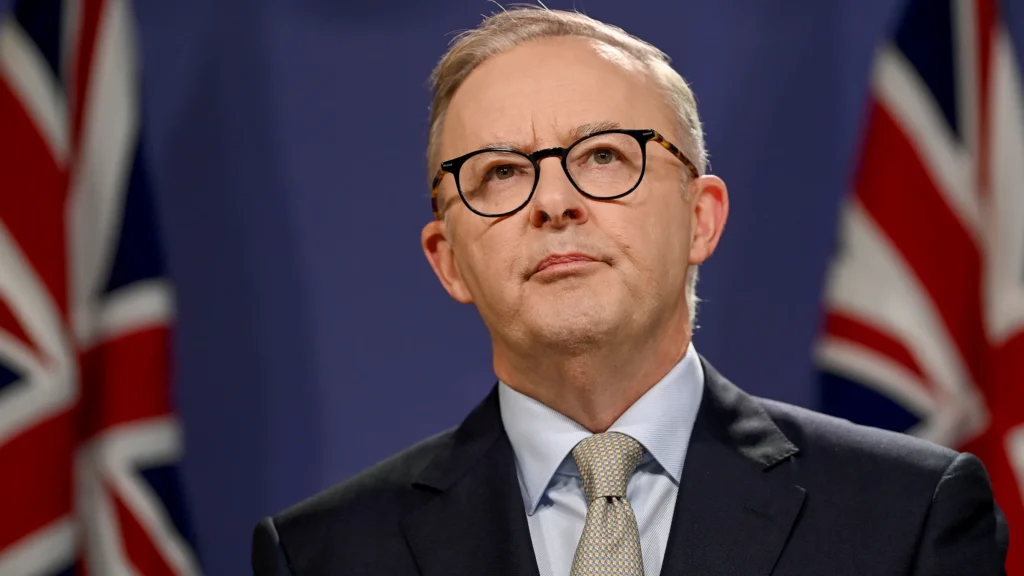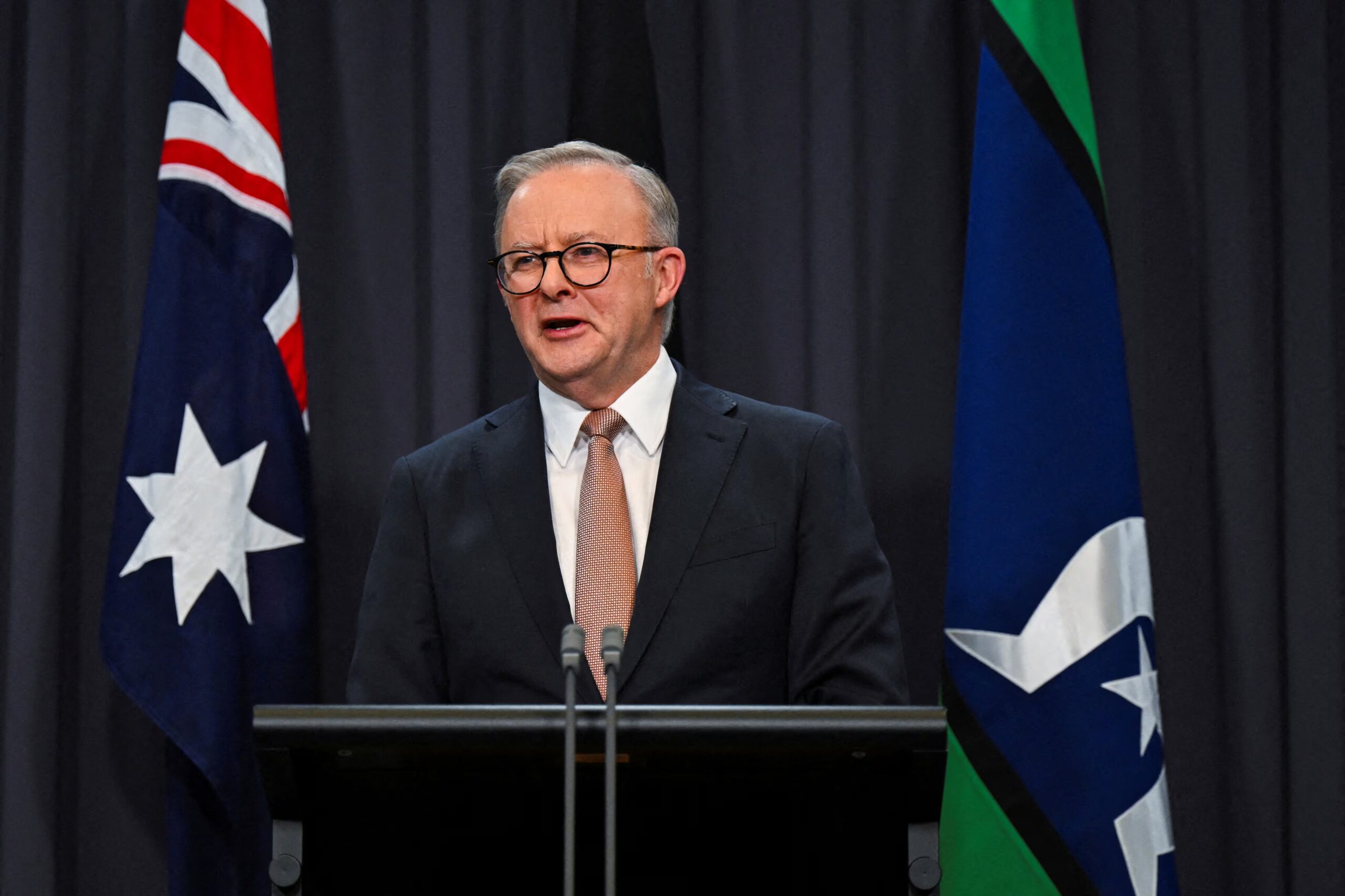The Albanese government’s proposal to increase the tax on superannuation balances exceeding $3 million has been significantly scaled back, largely due to concerns over its potential impact on Labor’s political future. This contentious tax hike, which was seen as a major revenue-raising initiative, now appears unlikely to proceed as originally planned, with political ramifications looming large.
Amid rising opposition and growing internal skepticism, the government’s plan to tax unrealised capital gains on superannuation balances above $3 million was left off the priority list of bills that the government had hoped to rush through the Senate before the year’s end. This decision marks a dramatic shift in the government’s legislative agenda, signaling a retreat from a proposal that has the potential to revive bitter political battles, reminiscent of the 2019 franking credits campaign that contributed to Labor’s loss in the federal election.
The Political Backlash: A Repeated Frustration for Labor
Prime Minister Anthony Albanese’s decision to abandon the superannuation tax reform reflects his determination to avoid another political setback similar to the one Labor faced after its 2019 policy on franking credits. The previous campaign, which aimed to reduce tax refunds for shareholders, was met with intense resistance from key voter groups and eventually contributed to the government’s defeat.
Given the growing unease within the party and concerns over the electoral implications of the superannuation tax increase, Albanese and other senior government figures have agreed to put the proposal on ice. The proposal, which would have targeted unrealised capital gains on superannuation balances over $3 million, promised to raise significant revenue, but it was seen as a risky move that could alienate voters and undermine the government’s standing with high-net-worth individuals.

Sources close to the government suggest that while the proposal could have provided much-needed funds for other essential services, the political cost outweighed the benefits. The specter of a repeat of the franking credits debacle was a major factor in the decision to scale back the plan.
Superannuation Tax Legislation: What Was Proposed?
Under the initial proposal put forward by Treasurer Jim Chalmers, superannuation balances exceeding $3 million would have been subject to a tax on unrealised capital gains. This measure was part of the government’s broader effort to secure additional revenue from Australia’s wealthiest citizens. The tax was designed to apply to individuals with superannuation balances above the $3 million threshold, targeting the portion of the balance that generated capital gains.
Although the government anticipated that the tax would generate substantial revenue, the measure was contentious from the start. Critics argued that it would disproportionately affect retirees and high-income earners who had diligently saved for their retirement. Moreover, many believed that the tax would create uncertainty around the security of superannuation savings, particularly for those who rely on their super for post-retirement income.
The Decision to Shelve the Plan: What Does It Mean for the Government?
The Albanese government’s decision to shelve the superannuation tax proposal highlights the political realities it faces as it prepares for the upcoming federal election. Despite the potential financial benefits of the superannuation tax, the risks associated with its implementation were deemed too great in the current political climate.
On Wednesday, as Parliament neared its final scheduled sitting day for the year, the government circulated a list of priority bills. Among the 37 pieces of legislation listed, the superannuation tax proposal was notably absent. Although it is still possible that the bill could be added to the list of bills to be fast-tracked through the Senate using a guillotine motion, sources indicate that it does not currently have the support needed to pass.
This marks a significant shift in the government’s legislative strategy. By leaving the superannuation tax reform off the list of priority bills, Albanese has effectively sidelined a proposal that once seemed like a key part of the government’s plans to address inequality and increase revenue. Instead, the government has opted to focus on other measures deemed more politically viable, such as reforms related to migration, electoral laws, and the structure of the Reserve Bank.
The Path Ahead: Focus on Less Controversial Legislation
With the superannuation tax reform shelved, the Albanese government is now focused on passing legislation that is less politically contentious. On Thursday, the government intends to push forward with a package of 37 bills, including crucial legislative reforms related to migration, electoral laws, privacy protections, and social media restrictions for minors.
The government has already made significant concessions on other proposed reforms. For example, the government withdrew its controversial legislation aimed at combating online misinformation and disinformation after it failed to gain sufficient support. Similarly, the idea of gambling reform has been postponed until after the election.
Some of the bills that will be prioritized include measures to regulate “buy now, pay later” credit schemes, strengthen privacy protections, and combat money laundering and sexual violence. In addition, the government will continue to push forward with its Future Made in Australia legislation, aimed at supporting local manufacturing.
Internal and Crossbench Reactions to the Government’s Strategy
The government’s strategy to fast-track key legislation has met with mixed reactions from across the political spectrum. Some crossbench senators have expressed concern over the sheer volume of bills being pushed through in a single sitting, with some speculating that certain bills may have been included in the hope that they will be voted down.
The government has also faced criticism for its handling of certain negotiations, including those with the Greens over environmental protection legislation. On Tuesday night, Albanese intervened to end talks with the Greens over the Nature Positive legislation, which would have established a federal environment protection agency. The failure to secure agreement on this issue has further complicated the government’s efforts to secure support for its broader legislative agenda.
In the Senate, independent senators such as David Pocock have indicated that they may be willing to support the government’s guillotine motion on the condition that the Nature Positive legislation is revived. However, given the political complexities surrounding the proposal, it is unclear whether Albanese will agree to these demands.
What Lies Ahead for the Albanese Government?
As the Albanese government faces mounting pressure ahead of the upcoming election, its focus is likely to shift towards policies that can galvanize voter support without alienating key constituencies. The decision to abandon the superannuation tax proposal reflects the government’s awareness of the political risks involved in pursuing controversial reforms.
With significant legislative challenges ahead, the government will need to carefully navigate the remaining bills in its agenda, balancing the desire for reform with the need to maintain political stability. As the final sitting days of Parliament approach, all eyes will be on whether the government can successfully pass its key measures and secure the support of the necessary crossbenchers and independents.




